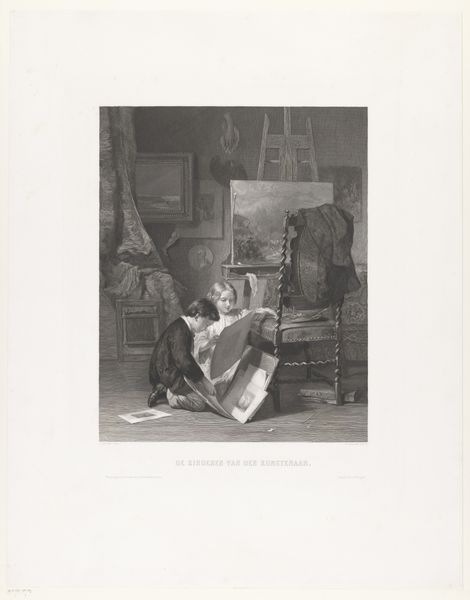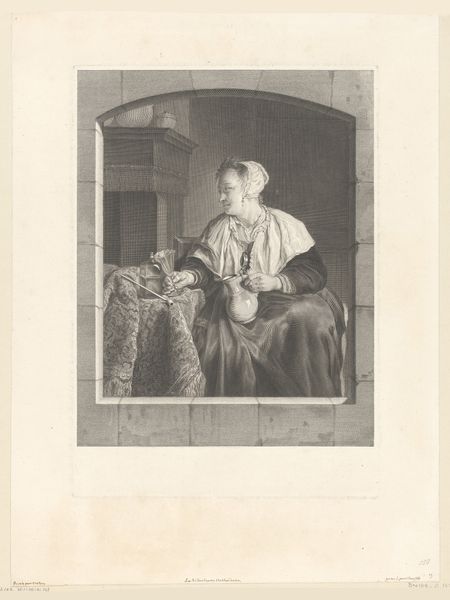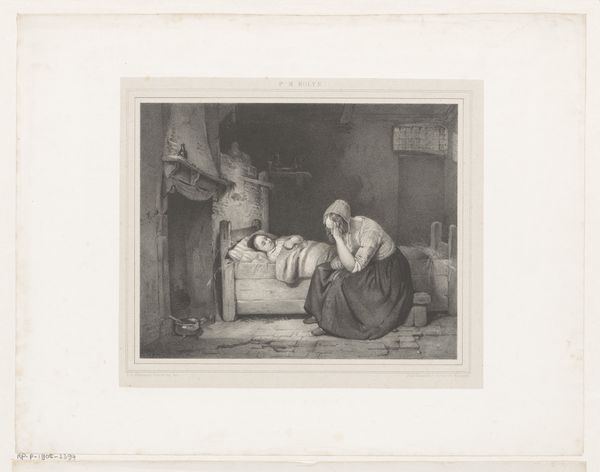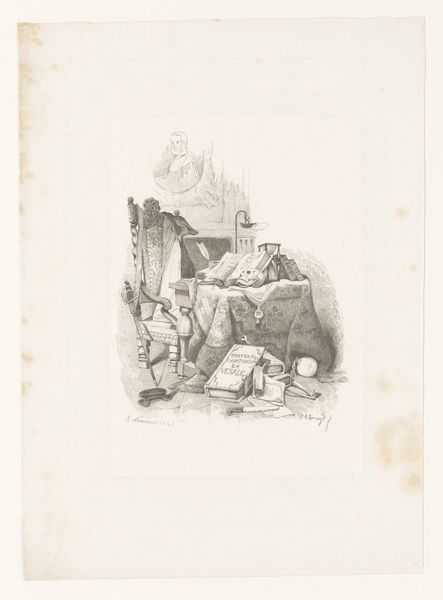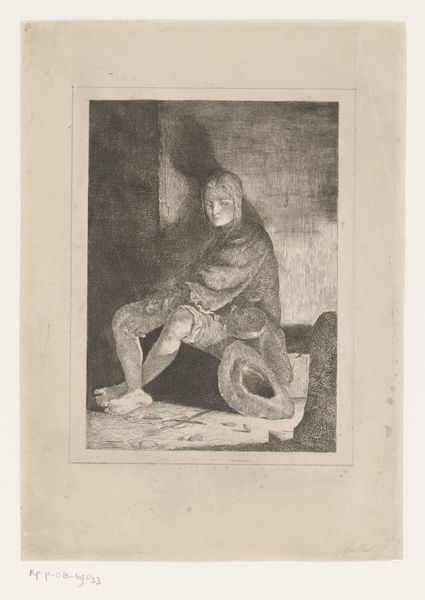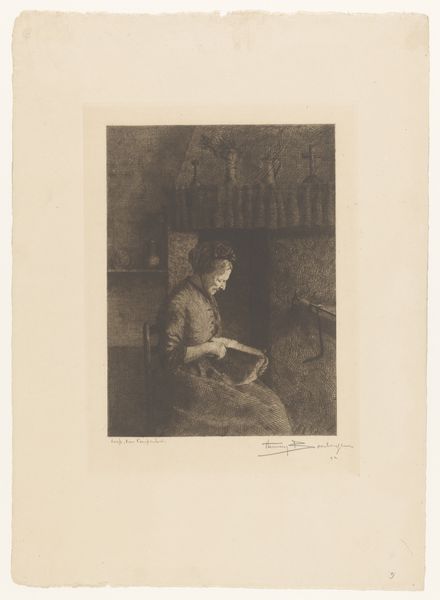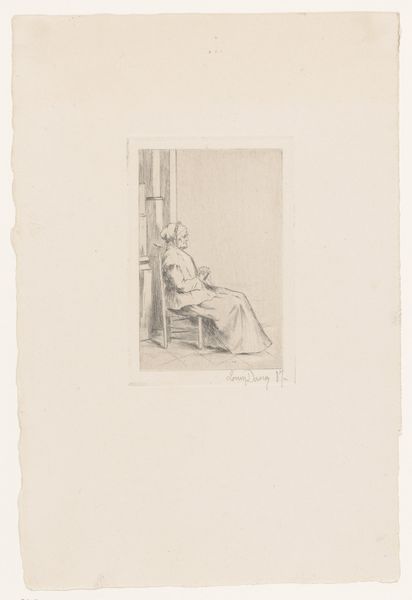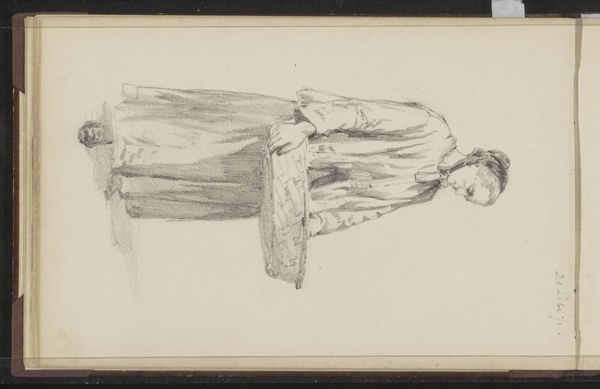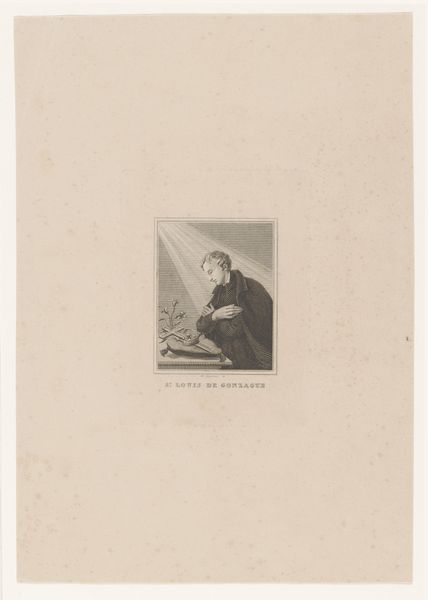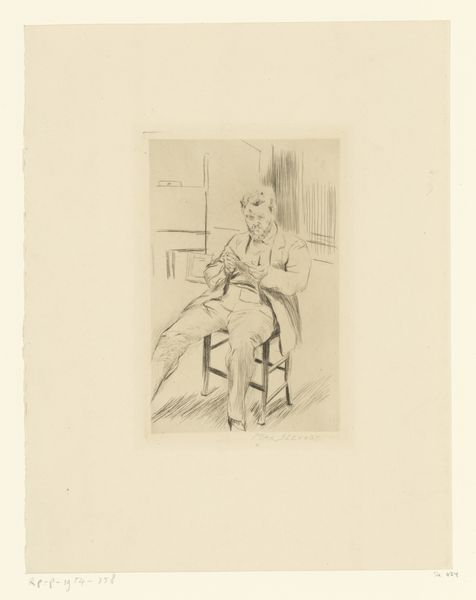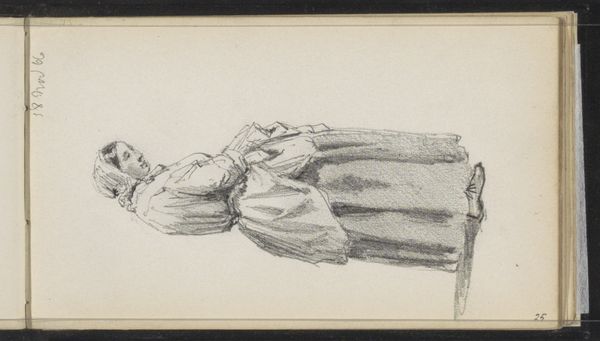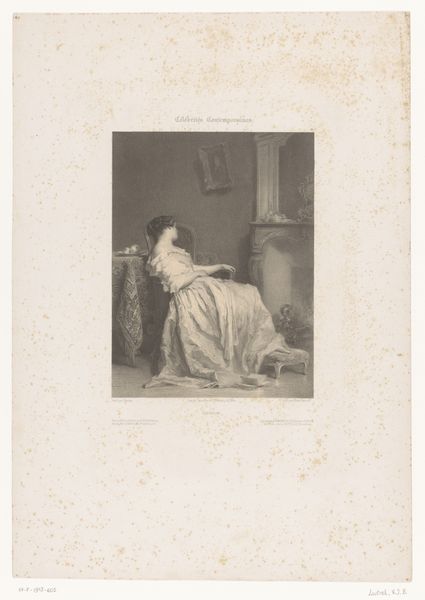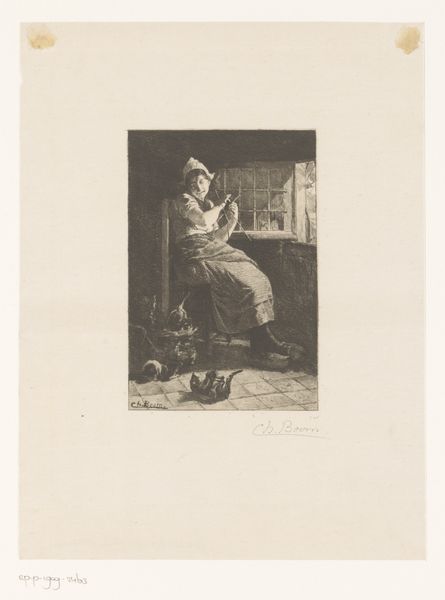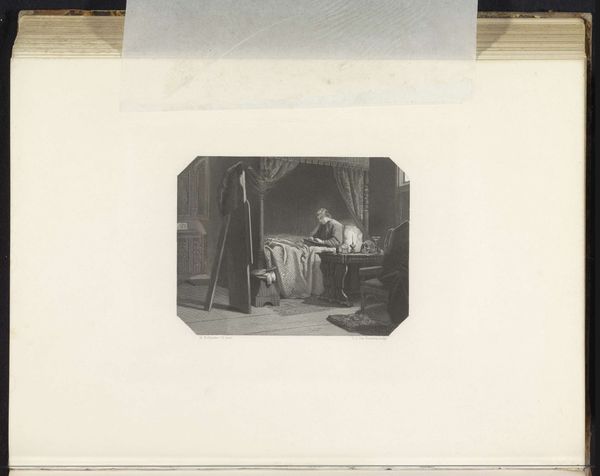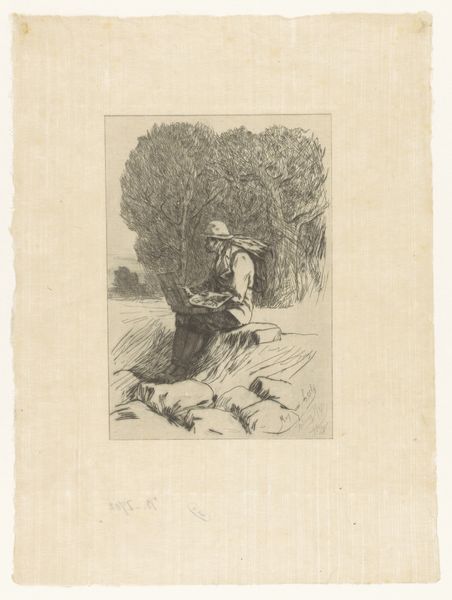
print, engraving
#
portrait
# print
#
figuration
#
pencil drawing
#
romanticism
#
history-painting
#
engraving
Dimensions: height 235 mm, width 322 mm
Copyright: Rijks Museum: Open Domain
Christian Bernhard Rode made this print, Johann Heinrich Rode richt zich op uit graf, in the eighteenth century using etching. Rode, the artist, was part of the Berlin Academy of Art and was known for historical allegories and illustrations, reflecting the intellectual and cultural life of Prussia under Frederick the Great. This print shows a man emerging from a tomb, and is likely an allegory for the personal or professional life of the man named in the title. It's a scene that borrows from Christian iconography of the resurrection, but in 18th century Europe, traditional religious subjects were often repurposed for secular messages. The print's meaning would have been shaped by Berlin's unique social and political context, where the state-sponsored Academy played a key role in defining artistic standards and promoting particular ideological views. Further research into the Rode family and the cultural trends of the time would give a deeper insight into the print's layered meanings. Art history reminds us that every artwork is embedded in specific institutions and social contexts, and only by understanding these can we fully appreciate its significance.
Comments
No comments
Be the first to comment and join the conversation on the ultimate creative platform.
